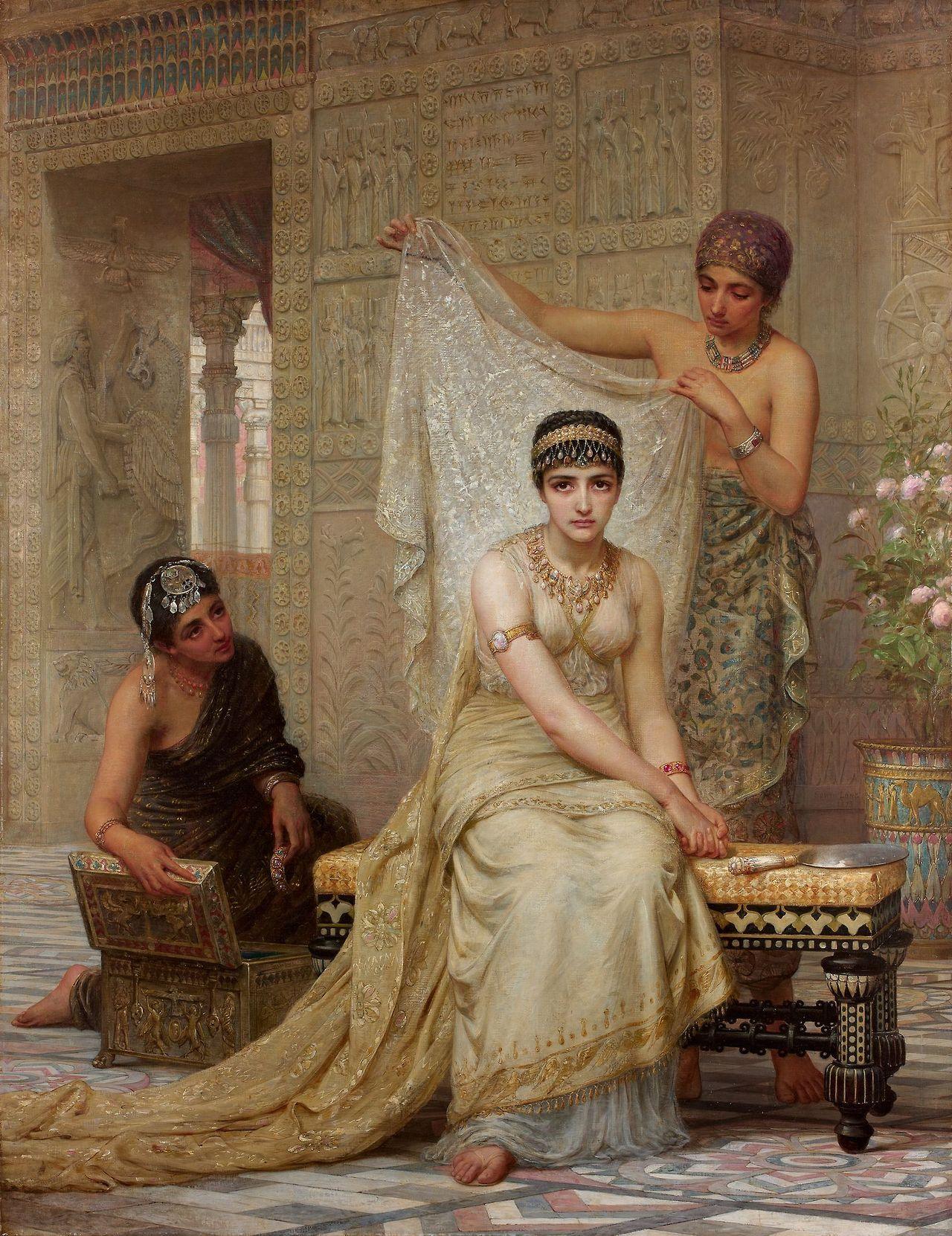Description
Edwin Longsden Long's Queen Esther painting is a masterpiece of Victorian art that has captivated viewers since its creation in 1878. This artwork depicts the biblical story of Queen Esther, who risked her life to save her Jewish people. of the massacre.
The painting is a sample of the academic artistic style, which is characterized by precision in the representation of the human figure and attention to detail. Long uses a realistic painting technique that allows him to create a vivid and detailed image of Queen Esther and her surroundings.
The composition of the painting is impressive, with the figure of Queen Esther at the center of the image, surrounded by her ladies-in-waiting and the king's courtiers. The arrangement of characters and objects in the painting creates a sense of depth and movement, making the image appear almost three-dimensional.
Color is another prominent aspect of the painting. Long uses a palette of rich and vibrant colors that give the image a sense of opulence and luxury. Gold and red tones predominate in the painting, reflecting the wealth and power of the Persian court.
The story behind the painting is fascinating. Long was inspired by the Biblical story of Queen Esther to create this piece of art. The story tells how Esther, a young Jewish woman, becomes queen of Persia and risks her life to save her people from massacre. The painting captures the moment when Esther appears before the king to ask him to save her people.
There are some little-known aspects of the painting that make it even more interesting. For example, Long used his wife as a model for the figure of Queen Esther. Furthermore, the painting was exhibited at the Royal Academy in London in 1878 and was very well received by critics and the public.

